In 1967, she picked up the baton for the Paranjoti Academy Chorus and turned it into a formidable force. On her golden jubilee as conductor, Coomi Wadia looks back on her journey
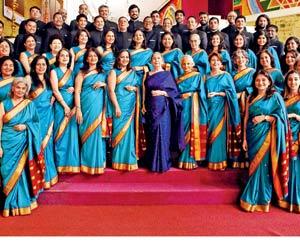
"But then, the chorus from Bombay is worthy of all superlatives. Starting with perfection of all voices... opulence of nuances... startling clarity of performance of all compositions... Everything here is absolutely perfect, unforgettable and no doubt represents the highest standard in the musical world," said a Polish arts magazine about the music of Paranjoti Academy Chorus at the IX International Choral Competition, organised by the Polish Television and Radio, in the early '70s.
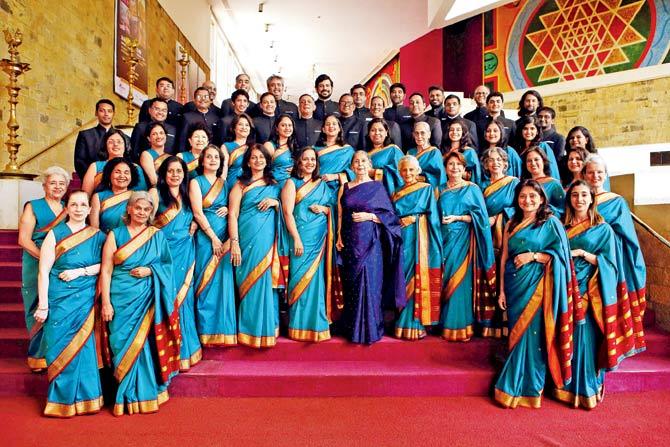
The choir has about 60 members in the age group of 18 to 80
ADVERTISEMENT
Over the course of 50 years, the Mumbai-based choir has left a similar impact wherever it has presented its music — most of Europe, including a performance at St Peter's Basilica, Vatican City, in the presence of Pope Paul VI; Japan; the Philippine; USA; and upon invitations from Pandit Ravi Shankar, the Dalai Lama, and the former President Pratibha Patil. Formed from Dr Victor Paranjoti's Bombay Amateur Light Opera Sabha group in 1960, the chorus came to be conducted by Coomi Wadia after the passing for Dr Paranjoti in 1967. She has helmed it since.
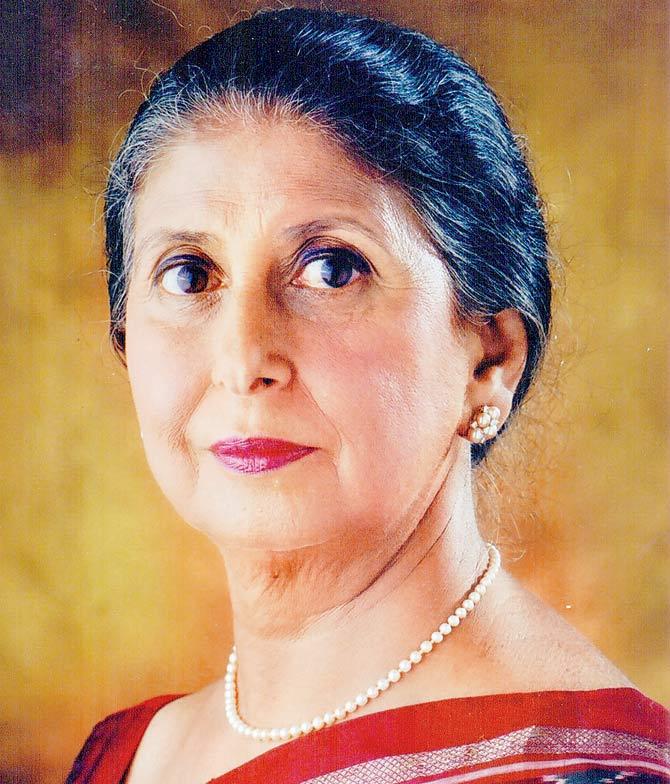
Coomi Wadia
Under her baton, the choir, which usually performs a cappella, has expanded its repertoire to 22 languages, ranging from 16th-century music to works by contemporary composers, spirituals and folk songs. "Sometimes, none of us know the language, but it's amazing how she gets us to sing in it authentically. She is very particular about our pronunciations and intonations," says Fiona Dias Miranda, an educator and member of the choir since 2005. "She is a taskmaster during rehearsals because she is a perfectionist. She expects high standards. But once the rehearsals are done, she is a lot of fun and shares stories of when she was a young singer or how she met her husband."
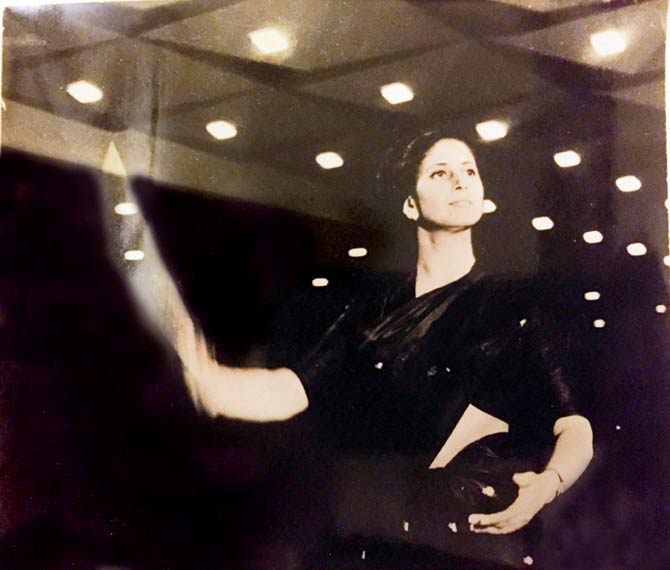
Coomi Wadia at her first concert as conductor on May 24, 1967, at Patkar Hall, New Marine Lines
Ahead of an upcoming performance by the choir with the Symphony Orchestra of India — the repertoire includes Mozart's requiem as a tribute to Wadia's late husband Nariman, who was also a choir member, and Coronation Mass as a celebration of the 50-year milestone - Wadia, 84, looks back on her journey.
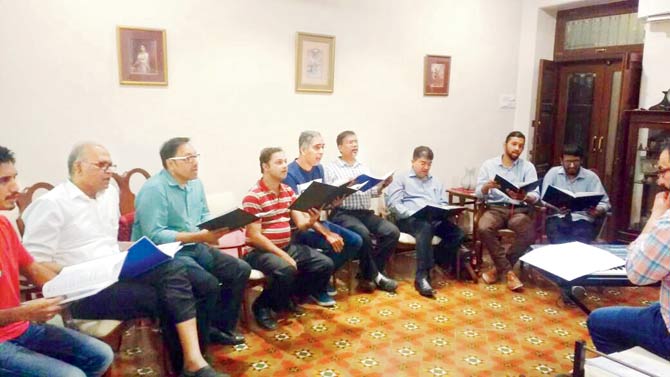
A sectional tenor rehearsal in progress
Edited excerpts from an interview:
Tell us about your musical background and your early days in the choir.
I was a pianist with two diplomas from The Trinity College of London when I joined the choir with Dr Victor Paranjoti. As a soprano, I enjoyed singing and sang many concerts under him. He was a fine choral conductor and I learnt a lot about the nuances of choral singing with him. But being a musician, I could respond better to his instructions and guidance.
Was it challenging to be a woman conductor when you took over?
It was more of a challenge for me as a singer to be accepted as conductor after his death. That was the big hurdle. I don't know whether being a woman made a difference.
How do you choose the choir members? Since many are working professionals, how do you manage an ever-changing group?
I, of course, choose people with musical knowledge, but many are interested to join and I accept them only if they have a sound ear for music, the enthusiasm to be in the choir and if they can attend regular rehearsals. This shapes them into good choristers. Those who have been with me for long help in the training process. If the new members cannot cope and find it too challenging, they opt out.
The choir is multi-cultural and multi-religious. How does diversity impact the music?
Music is a language that brings everyone together regardless of cultural or religious diversity. People from different countries also perform together in perfect harmony. Music is the force that brings us together.
Over the years, several choirs have emerged from the city. How has the evolution of the Paranjoti Chorus been in that context?
The Paranjoti Academy Chorus is the only choir that has gone on so many concert tours abroad. One of them was a world tour in 1989. In turn, we have also invited choirs from other countries like Germany, Spain and Japan, and have arranged their concert tours all over India. These cultural exchanges play an important part in bringing together people from all over the world.
As an observer of the city's evolving music scene, what are some of the changing patterns you have witnessed?
There was a time when it was largely Parsis and Christians who were studying and performing western music and attending concerts. But with organisations like the Symphony Orchestra of India and its training programme, The Mehli Mehta Music Foundation and The Furtados School of Music, a great interest has been created in western music and children from many different backgrounds are now studying it. With each child that performs, their families automatically become part of the audience. So, it is no more only Parsis and Christians who fill up our concert halls.
How would you look back on this journey of 50 years?
My journey as a conductor has been extremely challenging, rewarding, exciting and fulfilling, as I look back with a great sense of accomplishment at the last 50 years. I could ask for no more.
 Subscribe today by clicking the link and stay updated with the latest news!" Click here!
Subscribe today by clicking the link and stay updated with the latest news!" Click here!







